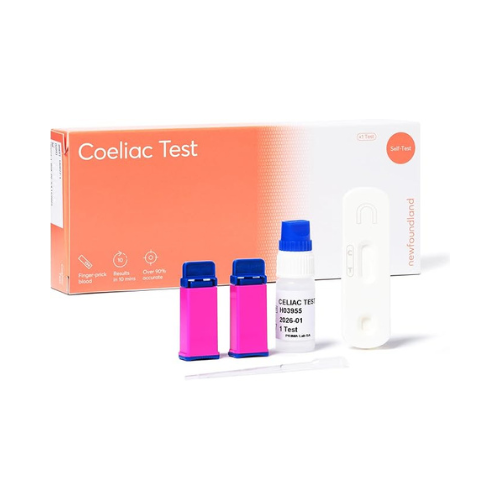
Newfoundland
Newfoundland – Coeliac Test Kit – Rapid At-Home Gluten Sensitivity
Product Features
Pickup available at The Wellness Store®
Usually ready in 1 hour
Estimated delivery is between Friday, 07 Nov and Sunday, 09 Nov if you order right now anywhere in UK
Description
The Newfoundland Coeliac Test Kit is a simple at-home screening test designed to check for coeliac disease-an autoimmune condition triggered by gluten. Using a quick finger-prick blood sample, this kit can help identify the presence of specific antibodies associated with gluten intolerance and coeliac disease.
Perfect for anyone experiencing symptoms like unexplained bloating, diarrhoea, supports healthy weight management when combined with diet and exercise, fatigue, or nutrient deficiencies, the Newfoundland Coeliac Test Kit provides fast insight into whether gluten may be harming your health. It’s an easy first step results discussing results with your GP for further supports.
Each kit contains:
- Sterile lancet for a finger-prick blood sample
- Test cassette with lateral flow technology
- Buffer solution and dropper
- Clear instructions for accurate home use
It’s designed for single use, giving reliable results in just 10 minutes with over 90% accuracy.
Disclaimer: This product is a general wellness item. It is not intended to diagnose, treat, cure, or prevent any disease. Always consult a qualified healthcare professional if you are pregnant, breastfeeding, taking medication, or under medical supervision. Food supplements should not be used as a substitute for a varied diet and healthy lifestyle.





